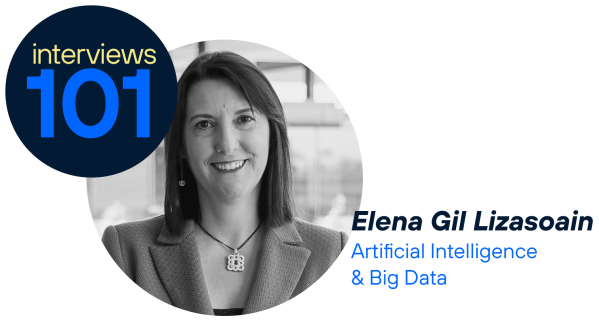This growth has been driven by the important advances that this technology has experienced in recent years and which has managed to provide solutions to the needs of today’s patients, changing medicine as we know it today.
Already in 2016, 86% of organisations providing healthcare services were using AI, as indicated in a report by CB Insights. This trend that started years ago has been augmented by the fact that AI systems are expected to be able to respond independently to patient-specific issues by 2025, especially in the wake of the healthcare crisis. In this way, healthcare can evolve into a fully personalised management.
Artificial Intelligence in medicine
The use of this technology in medicine involves the use of machine learning models to analyse medical data, collected through other tools such as Big Data, and derive patterns that help improve patient outcomes and experiences. Thanks to recent technological advances, driven by COVID-19, AI has become an integral part of modern healthcare.
Today, the most common applications of machine learning in healthcare settings are clinical decision support and image analithys. Clinical decision support tools help practitioners design treatments based on outcomes. It is also used in medical imaging for the analysis of CT scans, X-rays, MRIs and other images for lesions or other human radiological findings.
The challenges posed by the COVID-19 pandemic generated a technological evolution in the health sector. Many health systems and organisations began integrating AI-enabled technologies, such as algorithms designed to help monitor and analyse patients with coronavirus.
The AI offers great opportunities and benefits in the medical service. There is little doubt in healthcare environments that this technology will become a fundamental part of digital health systems, shaping and supporting modern medicine.
Benefits of AI applied to health
There are numerous examples where applications of Artificial Intelligence in medicine can benefit both the healthcare sector and society at large, whether by accelerating the pace of research or helping clinicians improve decision-making on treatment or diagnosis.
- Early detection and diagnosis of diseases: machine learning models could be used to observe patients’ symptoms and alert doctors if certain risks increase. This technology can collect data from medical devices and find more complex conditions.
- Personalised treatment design: AI models can learn and retain references, which is a great potential for personalised treatments in real time. Healthcare services could offer patients 24-hour access to a virtual assistant with AI. This system could answer questions based on the patient’s medical history, preferences and personal needs.
- Efficiency of clinical trials: the development of technology can help speed up clinical trial time by providing a faster search for medical codes assigned to patient outcomes.
- Accelerate development: AI could help reduce the cost of developing new drugs, mainly because of two factors. Firstly, it is able to improve drug design and find promising drug combinations. In addition, it can address many of the challenges Big Data poses to the life sciences industry.
- Reducing errors in diagnostic imaging: AI already plays a crucial role in medical imaging today. As effective as human radiologists, it can detect early signs of breast cancer or other conditions.
New applications of AI in medicine
New applications of Artificial Intelligence in medicine are changing the way patient care is understood, which is undoubtedly revolutionising the sector. For example, the use of deep learning techniques coupled with AI tools to detect lung lesions generated by COVID-19, through the segmentation of 3D images from CT scans.
Software has also been developed to make predictions and track the progress of infectious diseases in real time, which is why it has become so crucial during the coronavirus pandemic. Along the same lines, an algorithm focused on the fight against this virus has been created that is capable of predicting the sequence of the SARS-CoV-2 virus in a few seconds, relevant information for the creation of a new type of vaccine with messenger RNA.
In other areas, such as the creation of new drugs, a system has been developed that allows the 3D shape of a protein to be calculated from amino acid sequences. If proteins fold, it is considered one of the major problems in biology. This algorithm could predict folding structures, thus helping to study how molecules work in order to create new drugs.








